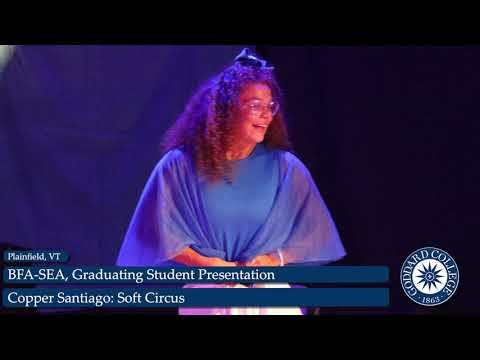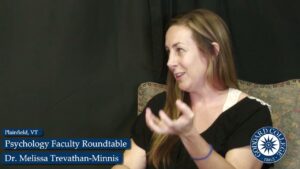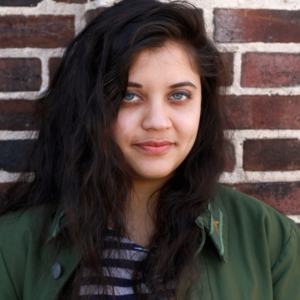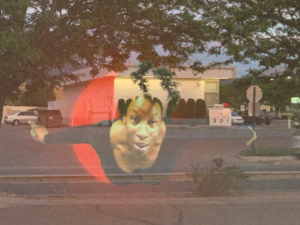
By Polly Young-Eisendrath
Originally published on March 30, 2020 Republished with permission from the author
Living in the time of COVID-19 gives all of us a strong and clear taste of uncertainty. Our welfare is on the line and we are trapped at home with our questions, our vulnerabilities, and the vulnerabilities of others.
Even in the midst of doing all we can to help others and giving our best effort to solve the problems in front of us, what can we learn from this ever-present uncertainty? If the virus allows us to see deeply into the meaning of uncertainty — and our “illusion of control” — it will have opened a door of wisdom in the midst of our suffering.
What is uncertainty? Uncertainty may have the flavor of doubt, skepticism, mistrust, or disorientation. Sometimes people feel depressed, anxious, or even helpless in the face of lack of control of, or prediction about, the future.
By its nature, however, uncertainty is not negative; it is a situation that could have either positive or negative outcomes. Uncertainty highlights ambiguity and clarifies the importance of paying attention in the present moment without leaping ahead.
The illusion of control is a term that refers to our tendency to overestimate our ability to control events and bring about the outcomes we desire. This effect was first identified and named by psychologist Ellen Langer. The illusion of control (along with the optimism bias and a couple of other positive biases) is one of the so-called “positive illusions.” When we feel them, we tend to believe that things are OK and that we “have it under control.” Even if we “know” we could get “hit by a truck at any moment,” we choose “not to think about that.” And yet, the illusion of control can also cause us to feel guilty about something we are not responsible for (e.g. the death of a sibling) or to feel proud about something we have not accomplished ourselves (e.g. the financial success of our grown children).
The illusion of control contributes to our sense of well-being in times of instability because it gives us the sense that we are the agents of our own fate. Even if we anguish unnecessarily over some false impression like we “missed out on all opportunities for success through our own short-sightedness” or feel superior to others who have had worse luck, we may find ourselves embracing the illusion of control instead of the ambiguity of uncertainty in times of stress and fear.
And yet, in order to engage with the richness of our actual possibilities and lives, we have to inhabit a space that allows for the truth of ambiguity, uncertainty, and lack of control. This means that we have to learn to tolerate and even to value the ambivalent combination of life/death, good/bad, love/hate and control/surrender that is the foundation of our existence.
We are never truly “safe” and there are no “safe spaces” except those in which we can take a step back from wanting a “perfect solution” or even a “lasting peace” and embrace ambiguity. Times like these remind us of the persistent and pervasive uncertainty of our own existence.
As a part of the illusion of control, we may feel compelled to construct fantasies or psychological projections about what is “really” happening: Is this virus a military or a political weapon? Is it being used for political purposes? Are the journalistic media promoting corporate profit-making for the drug companies or medical establishment in the ways they are reporting the news? Are the politicians using it for their own advantage? If we feel that we have found the “culprit” in our own projections, then we may want to attack or vanquish that culprit.
In place of the illusion of control, though, we can reach into our own capacity for deeper insight into our collective predicament, feeling both our vulnerability and our compassion for what we cannot know. One way to cultivate this ability is to recognize the complexity of our own being — that we are, ourselves, a combination of both good and evil, instead of projecting all ignorance and hostility outside ourselves. As the noted Russian author, Aleksandr Solzhenitsyn famously said:
The line separating good and evil passes not through states, nor between classes, nor between political parties either – but right through every human heart…
Here, I don’t mean to say that we shouldn’t try to find out what makes sense to us in terms of our alliances, but to do so with at least a modicum of knowledge of the complexity of our own humanness and the recognition that “good” and “bad” states, social strata, and political parties do not really exist in any pure or unsullied way.
Another approach is to develop a capacity that many of my friends and colleagues in psychoanalysis and mindfulness call “negative capability.” This frame of mind is one in which knee-jerk reaction and judgment are suspended in favor of staying with not-knowing or humility — sometimes called the “Don’t-Know Mind” in Zen Buddhism. Open to fresh awareness and new points of view moment to moment, negative capability is associated with creativity. The phrase was originated by the English romantic poet John Keats. It was used only once (as far as I know) in a private letter written by Keats in 1817. He wrote:
[A]t once it struck me what quality…Shakespeare possessed so enormously — I mean Negative Capability, that is, when a man is capable of being in uncertainties, mysteries, doubts, without any irritable reaching after fact and reason…
Of course, the massive uncertainty of our current physical and economic circumstances may prevent us from reaching after fact and reason (except through our own projections and fantasies). At the end of March 2020, there is no obvious fact or reason to rely on to maintain the illusion of control.
Living in a time of social distancing, enforced isolation, fear of disease and anxiety about the future cannot be reduced to any formula or meme. Remaining in present-moment awareness without knowing what is coming next is not a small challenge. We all want to know and to predict.
For example, I am constantly checking the map of disease outbreak in my area, not because the checking really helps me, but because the activity gives me something to do. It’s not much help, though. What has helped me more is that I have increased my personal meditation time and returned to more formal Buddhist reading and study. Also, I have s-l-o-w-e-d d-o-w-n with simply less doing, fewer plans, and more contemplation — what a mentor of mine once called “restorative indolence.”
These changes, even in the midst of my own irritable reaching after prediction and control, have given me more familiarity with uncertainty and the walking around awareness of the Don’t-Know Mind — resting at ease in the present moment while staying awake.
The opportunity presented to us in this time of powerful collective uncertainty is unmatched by any other time in my memory. This is an extraordinary moment for spiritual practice and personal humility. If this virus can allow us to move into a more complete embrace of uncertainty as the ground on which we walk, it will have served a positive role alongside the misery it has wrought and will wreak.

Polly Young-Eisendrath, Ph.D., is a Jungian analyst, psychologist, and psychotherapist in private practice. She is Clinical Associate Professor of Psychiatry at the University of Vermont and the founder and director of the Institute for Dialogue Therapy. She is past president of the Vermont Association for Psychoanalytic Studies and a founding member of the Vermont Institute for the Psychotherapies. Polly is also the chairperson of Enlightening Conversations, a series of conversational conferences which bring together participants from the front lines of Buddhism and psychoanalysis. Polly is the author or editor of eighteen books, ranging from parenting, adult development, intimate and parental love, Buddhist theory, Jungian psychology to women’s development, couple therapy, couple development, and various paths to awakening/enlightenment from meditation to personal love. These books have been translated into more than twenty languages. Her most recent works are The Self-Esteem Trap: Raising Confident and Compassionate Kids in an Age of Self-Importance and Love Between Equals: Relationship as a Spiritual Path. www.young-eisendrath.com
Polly Young-Eisendrath graduated from Goddard College in 1974 with a MA from the Goddard Graduate Program in Psychology / Mythology. Follow Polly on YouTube, Facebook, Twitter, Instagram. Podcast: ENEMIES: From War to Wisdom
A video companion to this article may be found here. Additional interview on the topic by Stefano Carpani
Interested in Goddard’s Psychology Program? Your work could help support individuals, relationships, and communities in times of crisis. Our uniquely structured BA in Psychology offers a fast track to achieving a Masters degree, while Goddard’s MA in Psychology program includes optional concentrations in Sexual Orientation, Expressive Arts Therapy, Human Animal Interaction Studies, Spiritual Care and Counseling.







